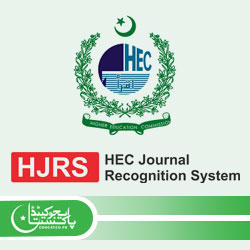Impact of Self Academic Audit (SAA) on program level accreditation: a case study in Pakistan
DOI:
https://doi.org/10.58800/bujhss.v2i2.15Keywords:
Self-Academic Audit, Program level AccreditationAbstract
Higher education institutions HEIs consider accreditation as a means to authenticate the quality of the academic programs. The accreditation of academic programs with the accreditation councils has become an important feature of the HEIs including Pakistan. Due to the importance of accreditation of academic programs with the respective accreditation councils, the research on the enablers and challenges faced by the university towards accreditation process is getting importance. There is diminutive research available on the benefits of self-academic audit of academic programs for higher education quality accreditation. This study aims to examine the impact of self-academic audit for accreditation of academic programs on the evaluated university. A qualitative case study was adopted using documentation and in-depth interviews as the research methods to explore perspectives of participants regarding the benefits of academic program accreditation. The qualitative research examines the impact of self-evaluation process for higher education quality accreditation from the perspective of managers, academic and administrative staff of the university. Data were collected through 12 face-to-face in-depth interviews. The interview participants were quality professional, members of quality assurance committees from faculty, department representatives, and focal persons for accreditation process from university. Nvivo software was used for in-depth qualitative analysis. Relevant analytical techniques for validation of various generated themes from the transcribed data. Coding nodes, word tag clouds and tree maps were generated. The findings of the study shows that the self-academic audit phase facilitated the university togather evidence of measures taken at the university and the standing of being recognized was taken as a carrier of prestige enhancement. The study found eleven sub themes and five major themes in terms of benefits of self-academic audit. The process, on the other hand, was also perceived to be burdensome, time and cost consuming, but after getting successful accreditation from the accreditation councils the significance of self-evaluation process is disclosed. The study highlighted features of self-academic audit contributed in the successful accreditation of academic programs. The five majors themes in terms of benefits of self-academic audit include evidence management, approvals, communication, culture and accountability. The study was delimited to only internal quality assurance mechanism and adopted one case study approach. In future, the results of the study could be utilized for multiple cases and for their reflection on external quality assurance mechanism as well. Few suggestions presented for the quality managers regarding enablers and challenges the HEI faced in self-academic audit. The study provides directions for future research.






